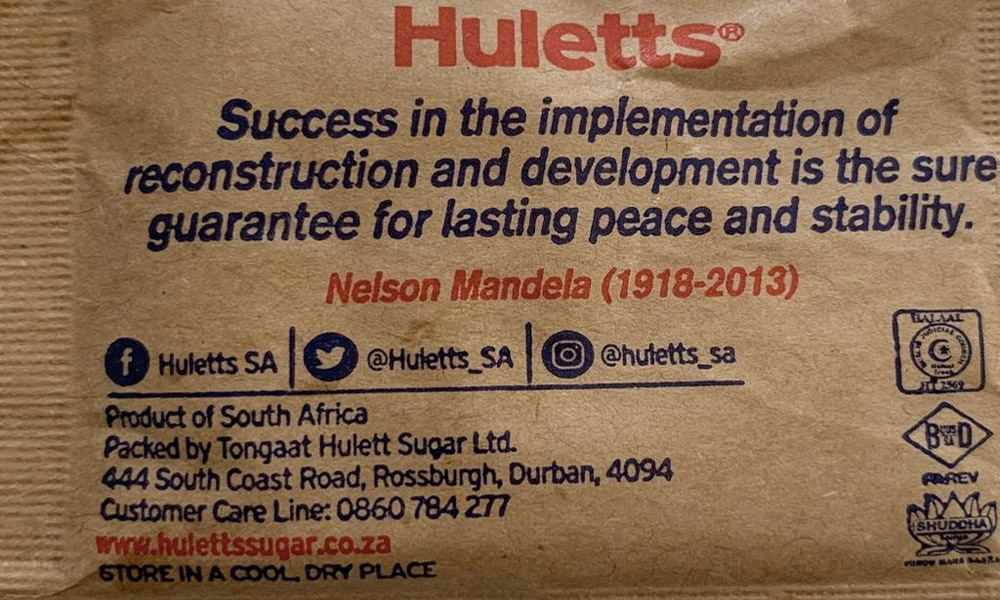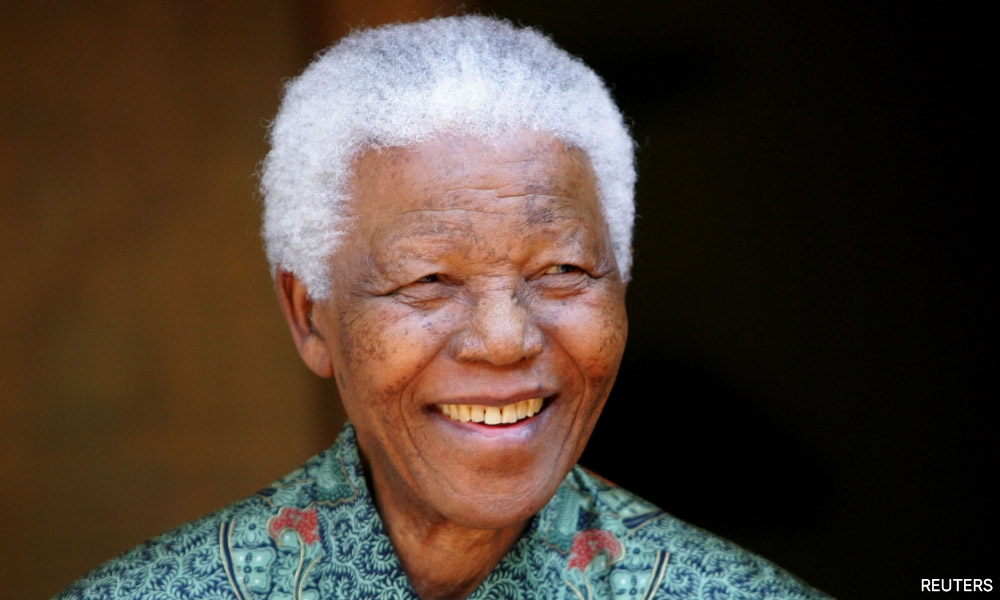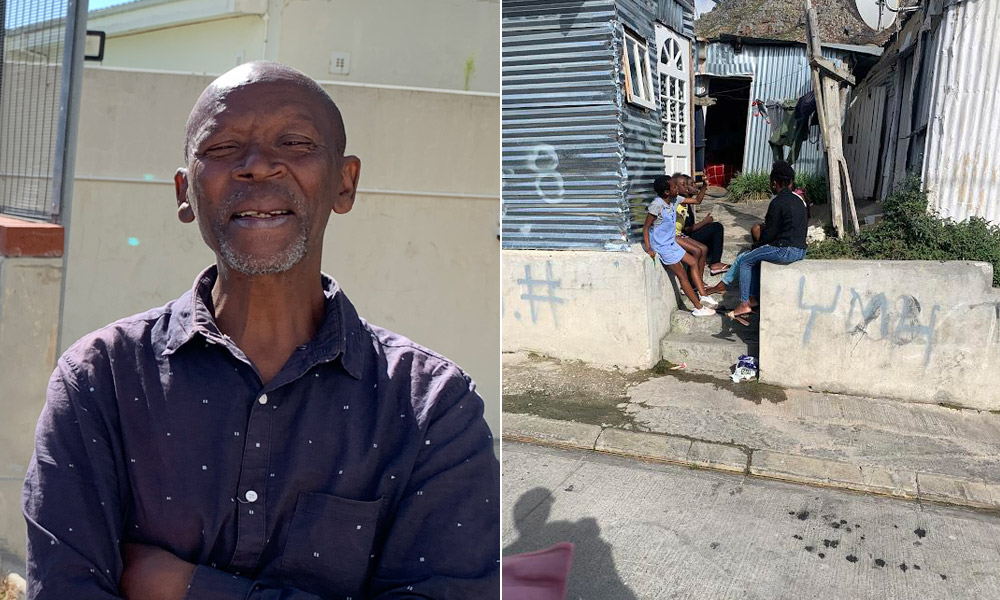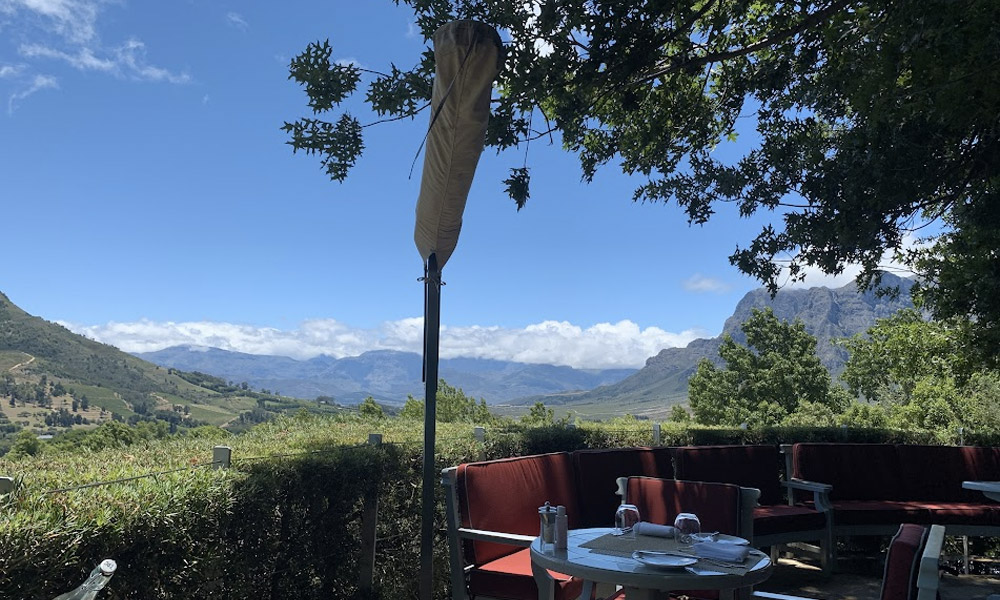On the back of a sugar sachet at a coffee stop in a supermarket outside Cape Town in South Africa was written the words: “Success in the implementation of reconstruction and development is the sure guarantee of lasting peace and stability.” - Nelson Mandela (1918-2013)
But after over 30 years of being freed from prison in 1991, slightly less after achieving political equality for blacks in 1994 by becoming its first democratically elected president, and a decade after his death, the indescribably beautiful country of South Africa remains cruelly far from the dream that the great Mandela envisioned for it and gave his life for, including 27 years in detention.
That’s because the reconstruction and development of the country did not take place as envisaged. While Mandela’s African National Congress (ANC) is still in power, its leaders, like many in Third World countries including ours, have succumbed to the temptations of power and sugar-sweet corruption, ignoring the plight of the people that they were fighting for.
Incompetence, the twin scourge together with corruption, completes the terrible duo that terrorises developing countries like South Africa.

While they were lining their pockets and living a life of luxury and riches to rival those of the whites who inherited most of the wealth of South Africa, much of it through oppression and apartheid, the subsequent ANC leaders ignored the so-called townships and others where the blacks lived in abject poverty.
A stark contrast in a land wonderfully preserved and its roads and other infrastructure immaculately maintained for the benefit of the enormously rich and which meets the eye much more than the townships - basically shacks - which lie outside developed areas in cramped conditions.
One we visited had 60,000 people crowded into 34ha, which is perhaps less than the size of a large vineyard with its winery and restaurant and accommodation for the well-heeled or that of numerous largely white-owned farms.
No one needed numbers to see that although political apartheid ended nearly three decades ago, economic apartheid is not only well and alive but thriving and strengthening its iron grip into a stranglehold.
Unequal economy
The World Bank in a report last year described South Africa (and some other countries in the South Africa Customs Unions or SACU) as the most unequal economy in the world but does not explicitly point out differences in incomes between blacks and whites.
In typical economic gobbledygook, as many World Bank reports tend to be, it says: “Making economic development more inclusive in SACU by reducing inequality would require policies that moderate differences in wage and business incomes. These differences in ‘market incomes’ stem from a combination of individual, household, locational and labour market factors.”

In a country of over 60 million people, some 80 percent are blacks, some nine percent each white and coloured and over two percent are Indians and Asians. The income per capita in 2021 was US$6,440, (Malaysia’s was US$11,371) a 7.15 percent increase from 2020. But the problem is how the income gets distributed.
Here’s the rub, as disclosed clearly in a Time Magazine report in 2021: “Attempts by the now-democratic government to wipe away the legacy of apartheid and colonialism have failed to narrow the imbalance between rich and poor, with 3,500 adults owning more than the poorest 32 million people in the country of 60 million.”
In other words, 3,500 people (0.0058 percent of the population) owned more than what the poorest half of the people owned, a wealth gap of over 9,143 times or 914,300 percent!
Further: “In South Africa, the richest 10 percent of the population owns more than 85 percent of household wealth, while over half the population have more liabilities than assets.
“That gap is higher than any other country for which sufficient data is available. The richest one percent in South Africa have likely increased their share of wealth since the end of apartheid.” Time quoted the World Inequality Lab data.
It further says: “While Black South Africans have outnumbered Whites in the richest 10 percent of the population for about seven years, the gap between South Africa’s richest and poorest hasn’t narrowed as the decline in racial inequality has been driven almost entirely by a surge in the top Black incomes rather than increased wealth for the poorest.”
To decipher this further, it means that there is a rich, elite class emerging in South Africa comprising most whites and an emerging black upper class of about one in every 20 blacks but the majority of blacks, around nine out of 10, continue to live in abjectly poor conditions.
Living standards
A South African guide Africa Moni took us (otherwise it may not be safe) into that world, a “township” in Hout Bay near Cape Town. We were to see similar scenes of deprivation and crowding near developed places where the blacks lived apart from the whites in appalling conditions of housing and poverty reminiscent of Johannesburg’s infamous Soweto, which I had seen in 2003.

This disparity and incongruence in living standards are striking in a country which has so much opulence and wealth in other areas, such as beautiful vineyards and wineries with wine tasting and elaborate lunches in places such as Stellenbosch, outside Cape Town.
Tourism is big in South Africa. It offers great food and drink, spectacular scenery and good infrastructure for travel but all these are fuelled by cheap abundant labour. Good dinners with wine are often less than half the price of those in Malaysia, not least because the South African rand is weak (a ringgit gets four rands).
Cheap labour lowers the costs of all inputs and a weak currency brings in much money for exporters in the local currency. Thus those “townships” (What’s a township? I live in a shack owned by my uncle, one waitress asked) provide that abundance of labour which keeps the economy chugging along at around seven percent growth.
But the largesse does not get distributed while the poor get poorer, the rich get richer. An elite class developed through apartheid is now sustained and added on to by a system which discriminates against its poorest people by keeping them in poverty through low wages, while some privileged blacks join the ranks of the long-privileged whites.

Here’s the lesson and warning for us. If we don’t watch it, we will go down the same path. An increasing number of Malaysians are marginalised from development because they are deprived of the necessities required for advancement - a decent standard of living obtained by fair wages, good housing and excellent education.
Such a situation is dangerous. I saw the faces in the townships - kids played, mothers tended as always everywhere. The men did not look so good and took solace in drinking and playing pool.
There is an underlying seething of anger everywhere. And only the end of economic apartheid will assuage it. As Mandela unambiguously indicated, the upliftment of living standards is the one sure guarantee of lasting peace and stability.
Let’s hope our new unity government does better than the government of National Unity president Mandela formed with South Africa’s last apartheid president FW de Klerk as his deputy after ANC’s resounding victory at the first free and fair elections there in 1994. - Mkini
P GUNASEGARAM, a former editor at online and print news publications, and head of equity research, is an independent writer, analyst and consultant.
The views expressed here are those of the author/contributor and do not necessarily represent the views of MMKtT.



No comments:
Post a Comment
Note: Only a member of this blog may post a comment.